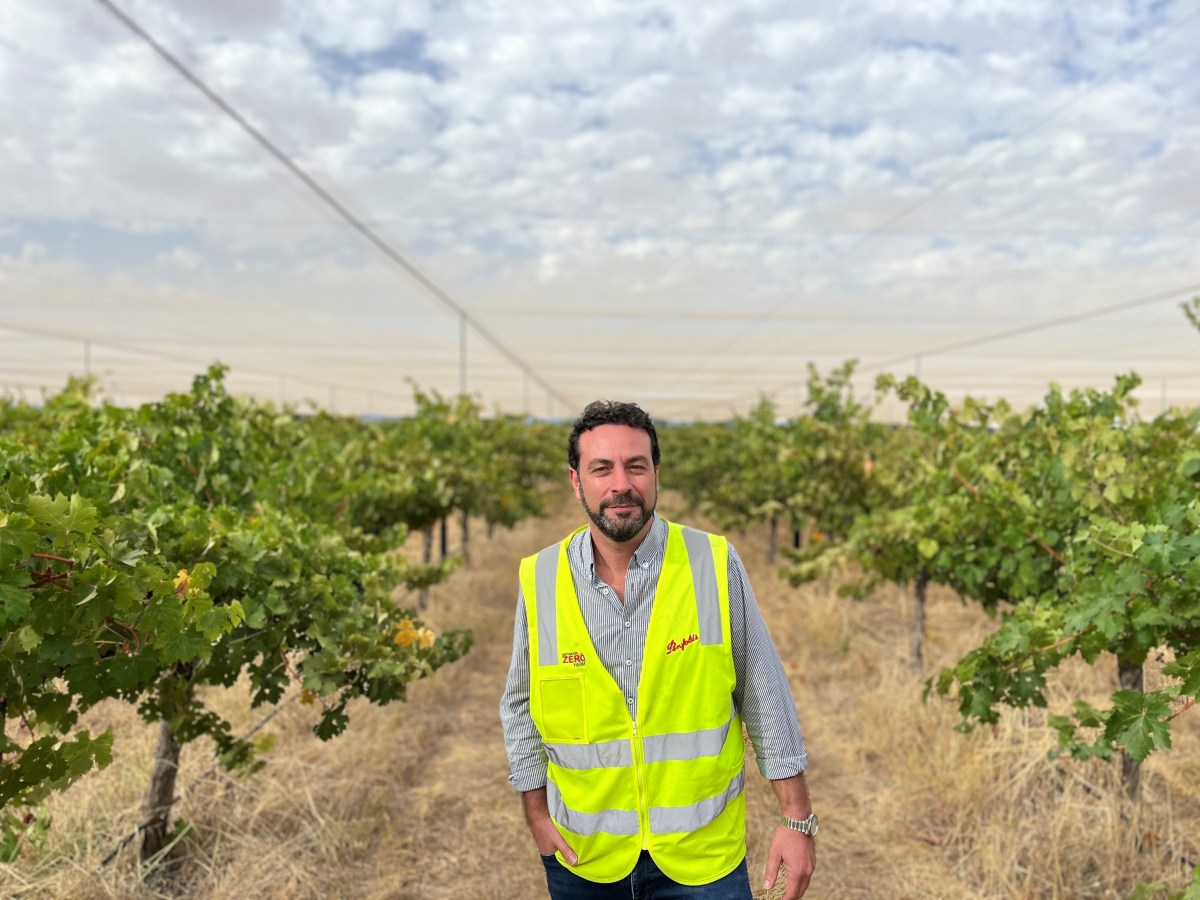Treasury Wine Estates (TWE) has invested in the installation of a $1m canopy at its Penfolds Koonunga Hill vineyard in the Barossa Valley as a means of protecting its luxury grapes from the impact of the changing climate.
The new enclosed nylon vineyard canopy protects the 14-hectare planting of luxury grapes, which was first planted in 2008 and produces Shiraz and Cabernet Sauvignon grapes for some of Penfold’s best-known wines including Grange, Bin 707, St Henri Shiraz, and Red Winemaking Trial Bin 798 Barossa Valley Shiraz.
Anthony Catanzariti, TWE’s Director of Wine and Grape Sourcing, spoke about the new installation.
“The Koonunga Hill canopy is a significant investment in climate adaptation in one of Australia’s most significant growing regions, the Barossa Valley. As a key sourcing region for some of our best-known luxury Shiraz and Cabernet wines, having the right viticultural practices to farm the changing conditions will shore up the supply of high-quality grapes for years to come.”
The Barrosa Valley is one of many Australian winegrowing regions impacted by the changing climate and this latest innovation was inspired by the use of similar canopies in citrus horticulture, designed to assist TWE in adapting its viticulture practices to suit changing environmental conditions.
With the Barossa Valley expected to experience drier conditions by the middle of this century, the installation of the canopy will help to mitigate predicted temperature increases and extreme weather events.
Due to the position of the Koonunga Hill vineyard within the Barossa Valley hills, cold air drainage makes the area prone to frost and intensifies the impact of hot northern wind. The canopy offers greater protection from these effects, creating a stable environment with reduced stress on the vines, less bird and hail damage, and reduced watering requirements.
Marcos Bonada, TWE Technical Viticulturalist, says water consumption in vintage 2024 was almost a third lower for vines under the canopy.
“In a higher-risk water catchment area like the Barossa Valley, creating conditions where vines producing luxury grapes can thrive with less water is a significant step forward in our sustainability efforts.
“Investing in adapatations like canopies to improve vine and fruit quality in a changing climate will help protect the region’s international reputation for full-bodied red wines,” he added.
TWE has already seen promising results from its 2024 vintage, with more intensity in colour on grapes harvested under the canopy compared with vineyards from outside of the canopy.
The installation of the canopies coincides with a series of other strategies implemented by TWE to adapt to changing climate conditions, including increasing use of technology to analyse real-time data on growing conditions, solar-powered measuring equipment, long-range weather forecasting, smart irrigation and water recycling.

